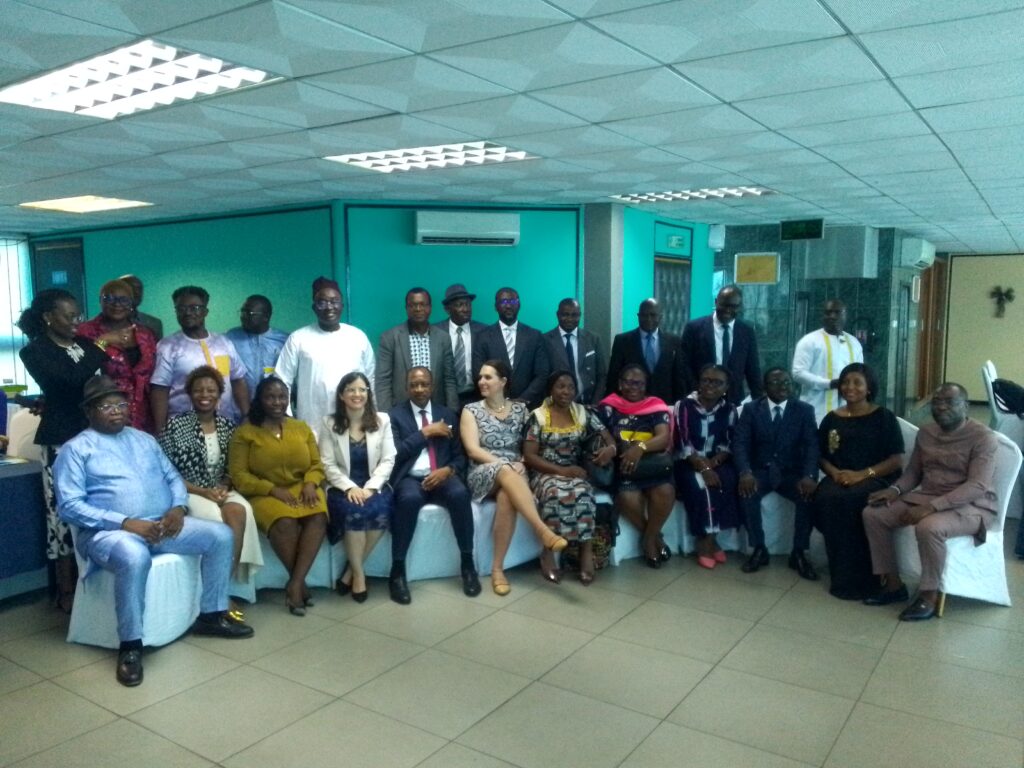Douala, March 27, 2025 – The financial landscape in Cameroon is evolving rapidly with the rise of digital financial services and fintech innovations. However, with these advancements come significant challenges, particularly in ensuring the security and protection of financial consumers. Recognizing this pressing issue, the National Economic and Financial Committee of Cameroon (CNEF), in collaboration with the United Nations Capital Development Fund (UNCDF) and other key partners, organized a high-level workshop at Hotel Residence La Falaise in Douala. This event brought together experts from the financial and technology industries to discuss mechanisms for protecting consumers in the rapidly evolving digital economy.
The workshop focused on the findings of CNEF studies and sought to develop recommendations for strengthening consumer protection in the financial sector. Participants were divided into different working groups, comprising fintech experts, microfinance institutions, civil society representatives, and regulators, to explore targeted solutions to emerging risks.
Expert Insights on Consumer Protection

One of the key voices at the event was Professor Yvette Kaliuu Elongo from the University of Nchang, who also serves as an expert with the UNCDF. She emphasized the importance of striking a balance between financial innovation and consumer security.
“You know that with the different innovations today, we’re noticing many developments in financial services in our area. When you talk about financial services, you talk about innovation, but also the question of how to protect the consumer,” she stated.
She further highlighted that while fintech and financial institutions are continuously innovating, these advancements must be accompanied by robust security measures to ensure consumer trust. Without adequate protection, there is a risk that people may shy away from using digital financial services due to concerns about fraud and data security.
“An activity like this brings different actors together to discuss what has been done so far concerning access, security of processes, and products. We’ll explore what can be done to further this process, as it’s an ongoing effort,” she added.
Challenges Faced by Cameroonian Consumers
Despite the increasing availability of digital financial services, many Cameroonian citizens continue to face significant hurdles when engaging with financial institutions. According to an analysis of customer complaints received by CNEF, several key issues stand out:
- Unjustified deductions from customer accounts – Many customers report unexplained charges and deductions, reducing trust in financial institutions.
- Fraud and wage embezzlement – Cases of misappropriation of funds have left many individuals struggling with financial losses.
- Lack of transparency in financial transactions – Poor communication regarding fees, interest rates, and transaction costs often leads to misunderstandings between financial institutions and their clients.
- Inefficient complaint resolution mechanisms – Many customers feel helpless when attempting to resolve financial disputes due to bureaucratic delays and lack of accountability from service providers.
The Role of Consumer Protection in Financial Inclusion
One of the fundamental pillars of financial inclusion is the protection and education of consumers. A strong financial sector relies on public confidence, which can only be achieved by reinforcing transparency, customer relations, and efficient complaint resolution systems.
For financial services to be widely adopted, consumers need to trust that their funds and personal information are safe. This means that regulators and financial institutions must work hand-in-hand to implement stringent security measures and clear policies for consumer protection.
The Way Forward
As financial services continue to evolve, the need for continuous innovation in consumer protection strategies remains paramount. Moving forward, fintech companies and financial institutions will be expected to:
- Strengthen transparency in their operations to build consumer confidence.
- Implement stronger fraud detection and prevention mechanisms.
- Improve customer support and dispute resolution processes.
- Work closely with regulators and civil society organizations to ensure that consumer protection measures are effectively enforced.
The workshop in Douala marks an important step toward securing the financial future of Cameroonians. While the digital economy presents numerous opportunities, the protection of financial consumers must remain a top priority. As innovation progresses, so must the mechanisms designed to safeguard the rights and interests of the people it serves.
By fostering a secure and transparent financial environment, Cameroon can ensure that its citizens benefit fully from the promise of financial inclusion and digital innovation.
By Betrand Ntumnyuy

